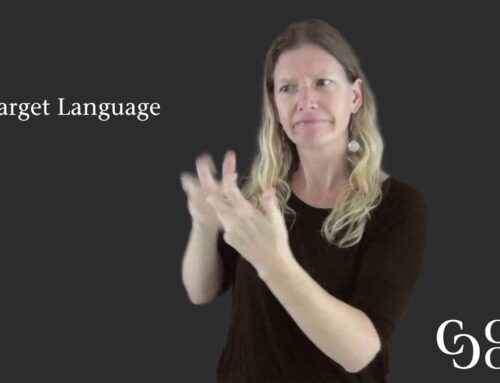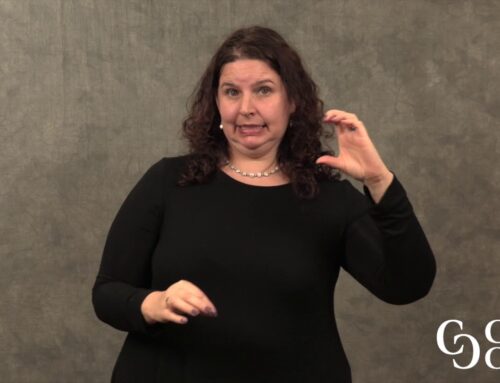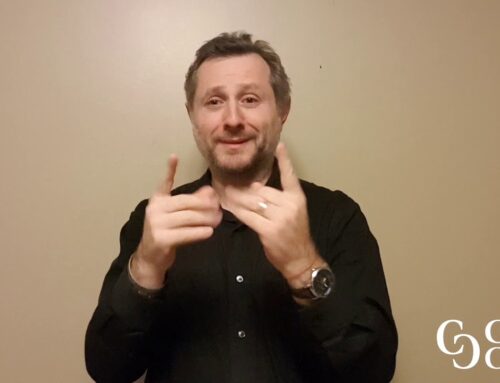 Developed by Mark Halley
Developed by Mark Halley
Competencies Addressed: Specialized knowledge and other
Time Required for Activity: 30 mins
Objective:
To learn about specialized knowledge (brain chemistry) and how to do prepare for such work ahead of time.
In this video, neuroscientist Dr. Nicole Avena explains how sugar affects the human brain.
Prediction
You will interpret a video in which Dr. Avena explains how sugar affects the human brain. As Dr. Avena is a neuroscientist, her explanation will be fairly complicated and focus on subjects like human biochemistry. Before watching the video, do a quick Google search about sugar and the human brain. Think about what topics Dr. Avena might discuss and how you might sign such concepts.
Consecutively Interpret the Video: The video is presented in 21 sections. When you click on “Part #” that segment of video will display in a pop-up window. To move on to the next part, close the pop up window and click the next link.
Watch the entire video segment before interpreting. Use as much time as you need for composing your message. Think about how you can use the visual information from the graphics in your spatial structuring and depiction of the processes within the human body.
We suggest record your interpretations so you can use it for analysis later. Don’t worry about catching everything. Just try your best to interpret the video.
Check Your Work
Now that you have watched and interpreted the video, watch the video again.
Note anything that you did not understand (e.g., the chemical names for sugar, the distribution of dopamine receptors in the forebrain).
Try doing additional research until you more clearly understand these concepts. Practice signing these concepts to yourself (e.g., fingerspelling the chemical names, depicting the distribution of the receptors) until you are comfortable doing so.
Consecutively Interpret the Video Again:
Watch the video again and interpret it. Record your interpretation.
Did you feel more comfortable after doing additional research on the topic? Finally, watch both of your own recordings. What differences do you see? How can you apply this to interpreting in the real world?
For example, if you were scheduled to interpret a college course on neuroscience, you might review the instructor’s lectures in advance and research the topics to understand them prior to each class session.




